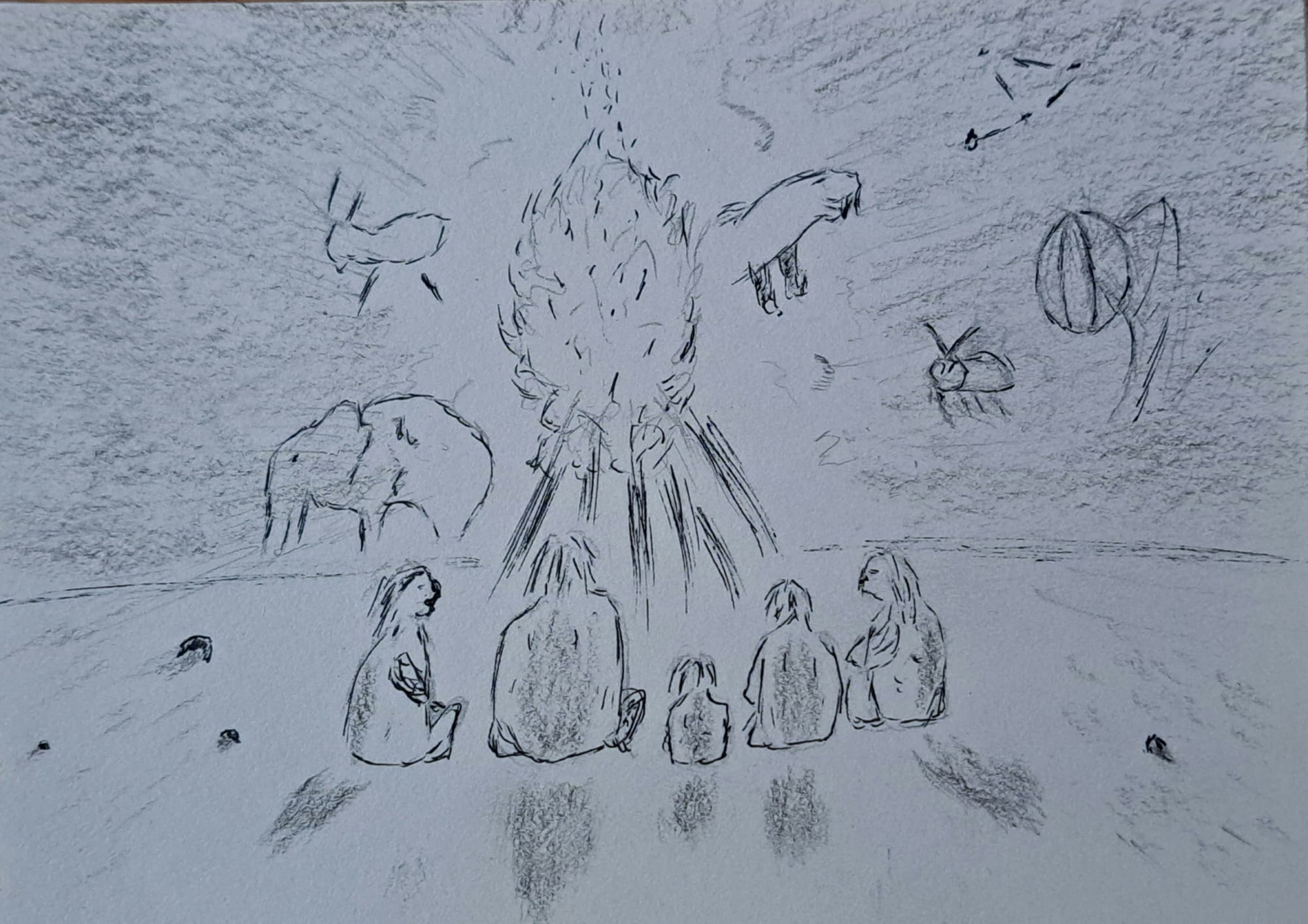Origins of Mankind Through Data Extrapolation
Past events of human History are only relevant as we can relate a set of data to our own ancestry and learn of our early behaviours. That is the case for early humans, where our cousins bring more to the table than extrapolation on fossils not yet discovered.

What is history and how does it relate to humankind's story?
History is a series of events that shaped our species into being what it is. These events can be man made but are also beyond the scope of Man's actions; such is the case of climate and geological formations that changed the landscape where our ancestors evolved. Not only did nature change our relation to the world and its environment and wildlife, but it also modifies greatly how we interact with our fellow man or woman. Our species is the only one to have spread on such a scale that we now inhabit every continent except Antarctica. While our adaptation and curiosity pushed our species to always venture further, we were however the subject of geographic distances and disturbances that created differentiation inside our species. And so much so that individuals discovering new land were surprised to see communities that had thrived there for thousands of years without any contact with others. And finally, because history does not permeates through time, we have to discover events that happened over the millennia.
When does our History start?
Earliest signs of human ancestry may have been lost to time as chaotic nature destroys and displaces proofs of earlier homo species, we may only have cousins of different branches to help us understand how earliest humans have been. This means extrapolating data from these branches before being able to identify which details might be true to our direct ancestors. For example, Australopithecus are not direct lineage but our species is confounded with those leaving at the time under the overall term Australopithecine. The necessary steps in evolution to reach the condition of Homo Sapiens are therefore found in Australopithecus and we can draw a parallel for our direct ancestors.
What does it mean to be human?
So while using tools is not inherent to humanity ingenuity, making tools is considered the embodiment of a significant step forward to the kingdom of Man for any species that evolved further under the Hominini tribe. These species were also able to postpone the feeling of hunger to bring back food to a common static place; their hideout where they could at least build a temporary sanctuary, bring together the food they had gathered and averting the risk to be taken out by predators therefore loosing their catch. More than a temporary place to catch a breath, the home base allowed small communities of individuals to heal when sick or hurt, therefore curbing natural selection and sidestepping the process of evolution. Evolution is adaptation to current environment but not foresee future changes. Because of the foresight created by gathering food to bring home we were able to better adapt to future events.
Here we can remember that we took care of others, because the individuals more often than not hurt during food hunts had to be replaced by others while some were still taking care of the younglings. Hence the usual pattern of family nucleus comprised of a male and a female with their descendants does not apply and these early humans were grouped in small communities helping one another, furthermore breaking from the evolution cycle of survival of the fittest to a survival of the interdependent.
Reduction of canines in hominines is another sign of survival as a community, a change in interactions between individuals for a better cooperation. This pronounced sociability can be found in the formation of our ancestors' brain, as they possess more developed zones corresponding to social interaction.
The fact human infants are weaned not long after they were born is another key factor for humans to have gathered in small communities. Other mammal mother nurse their infants far longer, the infant's responsibility only of the mother's, when shorter nursing means human communities could take care of infants altogether without the necessity for the mothers to play that role.
On the opposite side of the pyramid of ages, older and seasoned individuals that had acquired and developed the know-how to gather food and survive had to be respected and therefore taken care because of their grand age, in order to pass on that immeasurable knowledge. That is what the authors of The Penguin History of the World: 6th edition suggests and nonetheless continue saying gender-defined roles and nuclear family model must have began to emerge around this period of Time. Any gender would have been taken care of infants, including older women who would then have the opportunity to raise children while their mothers went to gather food. In fact, 80% of hunting-gathering communities surveyed (from the 19th century and on) showed women were among hunting parties.

